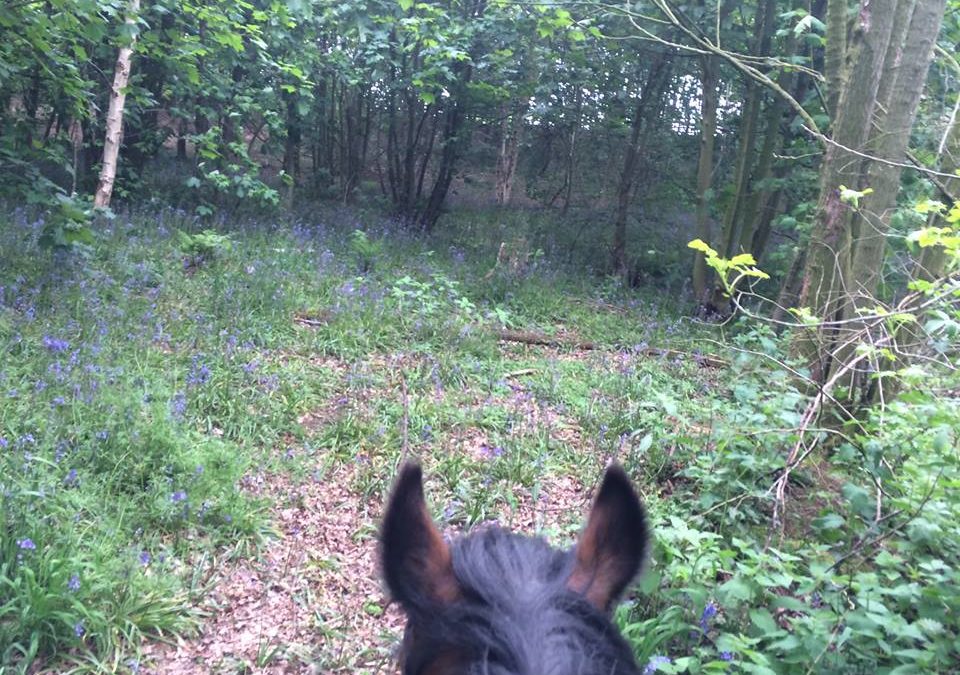
by Julia Felton | Jun 19, 2016
“Judge a man by his questions rather than his answers.” Voltaire
If you don’t know the answer, ask better questions. When we get stuck it is often because we are looking at the challenge through a single lens. We can only see one perspective on the issue and therefore we can’t find the answer. When you learn to ask better questions you are able to open up a raft of other possible options and in time a solution can just magically appear.
I remember a number of years ago using this technique when deciding whether I should keep my horse Charlie. I had him on a three month loan contract and the three months was coming to an end. I just couldn’t decide what to do, as the two options presented to me were that I should buy him or else give him back. I wasn’t happy with either of these options. I was stuck in what decision I should make. I was getting really frustrated.
At the time it didn’t occur to me that there might be some other options. There are always options because I was looking at the situation through my lens – the lens of self. What I had failed to realise was that there were at least two other perspectives. What if I looked at the situation through the lens of Charlie’s owner – the lady I had him on loan from. What would be her thoughts?. Or what would be the observations of a friend or an outsider looking in on the problem. When I looked at my situation through these two different lenses I was able to ask much better questions and so find new solutions.
From the lens of the Charlie’s owner I was able to realise that they really wanted him to have a good home and that was more important than the sale. I also realised that they didn’t really want him back as that would have cost them money. Although they would like to sell him it was infact better for them not to have him back. From the perspective of observer I appreciated that there was a solution that was mutually beneficial to both of us. We could extend the loan term and see what transpired. Extending the decision making process was important to me because at the time Charlie had been suffering from some injuries and I was not sure what the outcome would be. I didn’t want to buy him only to discover that the injuries would not heal, but at the same time he had a big heart and I knew that I could really help him.
This way of looking at challenges and asking better questions is called Positions of Empowerment, and it really helps give a different perspective on all situations. Try it now. Imagine or draw on the floor a triangle. Make the apex the position of the observer. The left hand bottom corner is the perspective of self and the right hand corner the perspective of other. Now literally step into each of these positions and see what questions emerge, and therefore what answers come up.
When I did this exercise about my ownership of Charlie what came up would be that I could ask the owners for an extension to the loan period, That way I could get Charlie through his injuries and then make a sensible decision to buy him based on the outcome. This was never something I had initially considered. Before doing this exercise I had foolishly assumed that the only two options were to buy him or return him. And yet there are always other alternatives if we just stop, ask better questions and then reflect on the outcome to these.
When we ask meaningful questions, we step back so others can step up and think things through for themselves. The art of questioning enables dynamic and critical think-through. Finding relevant questions uncovers and reveals richer, more relevant answers.
One of the challenges is that we have often been brought up not to question things – I know I was – so being curious is a habit that I have had to develop. As the Chines Proverb goes:
“He who asks a question is a fool for five minutes. He who does not ask a question remains a fool forever.”
So here are 10 ways you can stimulate greater appreciation for asking questions:
- Learn to listen actively; don’t just wait to be heard.
- Ask yourself while listening, “What’s trying to happen here?”
- Supportively challenge assumptions without being presumptive.
- Question what’s behind the issue being focused on.
- Gain buy-in during meetings for specific time to explore alternative points of view
- If asking questions appears to irritate, seek to understand the irritation.
- Encourage thinking that isn’t based on assumption.
- Understand how others think and how they approach problem solving.
- Ask, “What questions should we be asking that we’re not asking?”
- Don’t be afraid to appear ignorant?
Now in my case with Charlie I did extend the loan agreement for another six months. Charlie’s injuries did not improve. It turned out he has arthritis in his joints from his racing career and was technically lame on three legs He was never going to be riding horse I had hoped he would. When I learnt this I spoke with the owners and was able to purchase him for the nominal sum of £1, because although he was not rideable I knew he would be an excellent horse for the leadership work I do with horses.
So as a result of asking better questions and getting a different perspective on that situation I was able to save myself a lot of money and heart ache by not having paid full sales price for Charlie and then feeling resentful when he was diagnosed with arthritis. In fact we created a win-win situation where the owners no longer had to care for him and I had a horse that I knew could add amazing value to my leadership programmes.
So what better questions can you ask today? Be curious and you might be really surprised by the results.
Julia Felton (aka The Business Wrangler) is the founder of Business HorsePower. Business leaders, entrepreneurs and executives hire her to accelerate their business performance by harnessing the energy of their people to work more collaboratively together. By aligning purpose with actions the team achieves exponential results as everyone starts pulling in the same direction.
Julia believes that business is a force for good and through designing purpose-driven businesses that leverage the laws of nature, and the herd, you can create businesses founded on the principles of connection, collaboration and community that make a significant impact in the world.
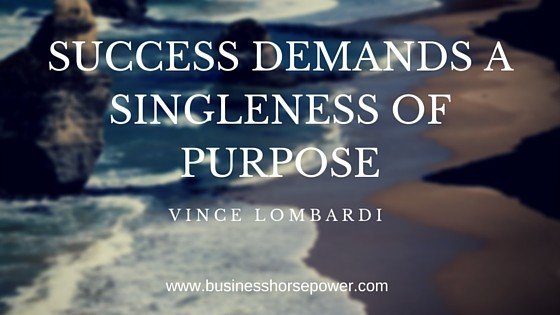
by Julia Felton | Jun 15, 2016
Wednesday Wisdom has come around again and I am delighted to welcome a bunch of new people to the Business HorsePower herd. These are all people that I have had the honour of meetings whilst I have been attending exhibitions, conferences and networking events over the last week. They are all people I have been sharing my purpose and vision for my company with.
So why is it imperative that you have a purpose in business? For me purpose is the rocket fuel that keeps my business going on the days I feel it stalling. It is what keeps me motivated and inspired to do my best. It is what drives the strategy of my business and helps me formulate the decisions I make.
When you are unclear on your purpose and become disconnected from the raison d’etre you went into business then your business can often feel like a rudderless ship, going round and round in circles. You don’t know which path to take because you don’t know where you are going.
After all we live in a world where we have so many choices – arguably way too many – and that is a problem. There is always some bright, new shiny object that you can pursue, some new business venture you can become involved it, some new product you can create. But none of those activities will move your business forwards and help you achieve and sustain success unless they are strategically aligned with where you want to go.
This is why every business needs a routemap (a strategy) of where they are going. Without this clarity who knows where you will end up. So what is a strategy?. It is a plan for obtaining a MAJOR result. It is a plan for enabling you to achieve a quantum leap in your business and it marks the milestones that need to happen to get you there. This is different from a business plan or a load of tactics and to do lists.
Now, if the thought of creating your strategy is bringing you out in a sweat, don’t worry, as I have an agile, innovative solution. Do you think you would be inspired if we could distill your strategy down to just one page – after all if it doesn’t fit on one page its clearly too complicated!. Plus, if you’re like me you will never look at it again.
Creating a single page strategy plan for your business success is a challenging task but one that will reward you 10 times over. It will force you to think differently about your business and prioritize the activities you do, because everything will be linked to your purpose. It will help you focus and stop you getting distracted by what I loving call Entrepreneurial ADD.
So if you a ready to roll your sleeves up and create your strategy on a page then give me a call, and let me help you. This one thing has transformed my business and my life more than anything else I have invested in. It is definitely the one thing that has made all the difference.
I’d love you to let me know if you have a business strategy and if not why not, maybe I can help you.
Wishing you another amazing week.
Julia Felton (aka The Business Wrangler) is the founder of Business HorsePower. Business leaders, entrepreneurs and executives hire her to accelerate their business performance by harnessing the energy of their people to work more collaboratively together. By aligning purpose with actions the team achieves exponential results as everyone starts pulling in the same direction.
Julia believes that business is a force for good and through designing purpose-driven businesses that leverage the laws of nature, and the herd, you can create businesses founded on the principles of connection, collaboration and community that make a significant impact in the world.
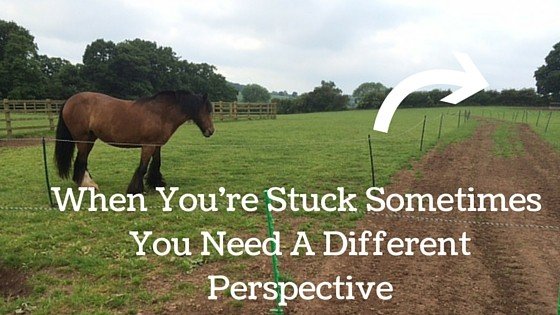
by Julia Felton | Jun 12, 2016
One of the things that I have learnt in business is the value of getting another perspective on a situation. All too often business owners are so stuck in their business and when you are deep in the woods, it is difficult to step back and get an aerial view of what is really going on in your business.
In my book The Alchemy Of Change I likened this situation to being on a ship. When you are stuck under the hatches, below deck you cannot see where you are going and what is coming up on the horizon. Also when you are in this place sometime everything can seem really difficult and yet just one small shift can make all the difference. Jeff Olsen refers to this as the Slight Edge. It is that tiny change that helps everything accelerate to the next level.
This morning my pony Bracken so ably demonstrated this fact that I felt compelled to write about it. You see during the winter the horses field got really wet and so every time the tractor took hay out to the field it left some serious tyre tracks. In some places the ruts were 18 inches deep. So in effect I had a field with these two channels running through the middle of it. Fast forward to last week when finally we were able to roll the field and dig up the tractor ruts and then reseed the field in this area. The result is that there is a strip in the middle of the field which is roped off so the horses can’t walk on it. The challenge is that this means that the horses have to walk around this to get to the gate in order to get out of the field.
So this morning, with a bit of help from me, Charlie, Toby and Thistle figured out they had to follow me up to the top of the field and then walk down to the gate, but bless her, Bracken is all confused. Stuck on the wrong side of the fence she can’t get out. I can see her getting frustrated and annoyed as her friends leave her and yet all she had to do was turn round, walk 100 yards in the other direction and then she could get over to the other side of the seeded grass patch and so join us and come in. But instead of doing this she just stayed there, stuck and getting really frustrated She couldn’t see what was so obvious to everyone else.
So here are the three reasons I learnt from her on why you need a different perspective:
- Stuck in the depth of what was going on Bracken continued to do what she had always done and yet this time she was not getting the results she wanted. She couldn’t get out of the field. And yet in business all too often we can get stuck doing the same thing time and time again and there comes a point where this action is no longer serving us. Bracken needed by different perspective and coaching to show her there was another option.
- Often it is only a minor change that needs to happen to catapult your business to another level. Bracken basically had all the elements in place to get out of the field. She was just approaching the situation in the wrong order. Once she realised that she had to go backwards to go forward then she flew into the new field. And this is also what happens in business. Often we need to take time out to reflect, take stock and re-group before we can move forward.
- Once Bracken had been shown the new way she accelerated with massive momentum towards her goal. And this is what i see happening in business too. Once the business owner has really clarity on where they are going, and is shown a path of how to get there, there business can take off exponentially. Its all about ensuring everything is aligned and then the business will flow effortlessly, much like Bracken when she galloped off to find her friend.
So if you’d like to get a different perspective on where you are in business and how to get to the next level, then please connect with me for a personal strategy consultation where I can help you map out what the problem is and one simple action to can take to get back on track.
Julia Felton (aka The Business Wrangler) is the founder of Business HorsePower. Business leaders, entrepreneurs and executives hire her to accelerate their business performance by harnessing the energy of their people to work more collaboratively together. By aligning purpose with actions the team achieves exponential results as everyone starts pulling in the same direction.
Julia believes that business is a force for good and through designing purpose-driven businesses that leverage the laws of nature, and the herd, you can create businesses founded on the principles of connection, collaboration and community that make a significant impact in the world.
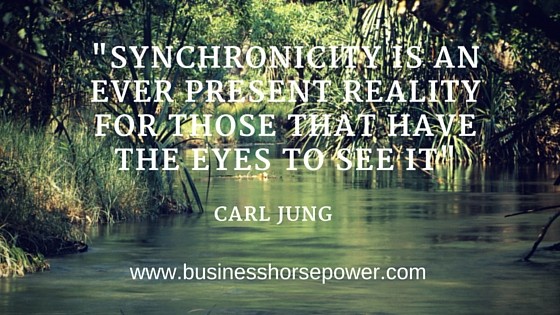
by Julia Felton | Jun 9, 2016
A number of people have recently been asking me why I moved to Yorkshire. After all I could have gone to live anywhere and yet Yorkshire became my calling. I’d love to say I had a concrete plan but that is simply not true. I ended up in Yorkshire because the same person’s name came up four times in a row as a place where I could keep my horses. A place that would resonate with my values and that would provide an amazing base for me to run my leadership workshops with horses. And so I listened, came and checked out the place and the rest as they say is history.
The dictionary defines synchronicity as a series of co-incidences and that is certainly what happened to me. I had always loved Yorkshire from a brief time when I worked up here and then every time I visited my friend Sarah-Jane and her family I loved it even more. So when I had the opportunity to relocate Sarah-Jane suggested Yorkshire and I was open to that.
However, it wasn’t just about moving me. In fact that bit was pretty simple. The more complex piece was finding somewhere for four horses, where they could live out all year, but still have some stabling to come in when they wanted. Plus it had to be a venue that was open to my clients coming along and partnering with the horses to develop their leadership skills. My wish list was long and to some degree potentially unbelievable.
I shared with a number of people what I needed and the same name kept coming up. Initially from an old school friend, who I had not seen in 20 years. When I met her at a reunion she immediately thought I was a horse whisperer and asked me if I knew her friend Sarah. I didn’t directly although it turned out Sarah had assessed my videos when I was studying for my Monty Roberts Certificate in Natural Horsemanship some 5 year earlier. Spooky. And then Sarah’s name came up again a couple of times so I felt compelled to come and meet her. It was Christmas 2012 and of all the yards I went to see Sarah’s yard (which is usually full) was the only one that could accommodate all my four horses and was happy for me to work out of her venue. Plus, as anyone who has been to one of my events will know, it is a magical place and their philosophy of horsemanship so resonates with my own.
The thing is that I would never have found this place if I had not be present and open and really listening to what was going on around me. If I had not listened to my intuition I would not have ended up here. And yet this is the perfect place to be.
And if I stop and reflect on my life there have been loads of these co-incidences. What initially appear random events all aligning to show me the path to my success. The challenge is that often we are so embroiled in our day to day activities that we never stop and see the opportunities right before our eyes.
So today, I urge you to slow down, become present and really see what is happening around you, as there are clues everywhere. You just need to look and then join the dots.
I’d love to hear from you on how synchronicity has shaped your destiny and the biggest lessons you have learned. I truly believe that everything is happening for a reason. It is just up to you to listen and the take action.
Have an amazing synchronistic week.
Julia Felton (aka The Business Wrangler) is the founder of Business HorsePower. Business leaders, entrepreneurs and executives hire her to accelerate their business performance by harnessing the energy of their people to work more collaboratively together. By aligning purpose with actions the team achieves exponential results as everyone starts pulling in the same direction.
Julia believes that business is a force for good and through designing purpose-driven businesses that leverage the laws of nature, and the herd, you can create businesses founded on the principles of connection, collaboration and community that make a significant impact in the world.
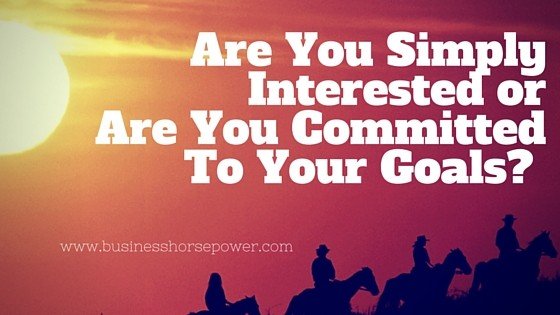
by Julia Felton | Jun 1, 2016
Wow, can you believe that today is the 1st June. Where has the year gone. At this time of year I like to take stock of what has occurred and make sure I am on track for the rest of the year. I take time to review what has worked – so I can do more of it – and what hasn’t so that I can refine and amend it. Only by reviewing what has happened are you in a place to make some different decisions about the future course.
And what do you do if you’re not on track? Then I urge you to consider this. Are you simply interested in the goal or are you committed, and I mean really committed to it? I’m interested in losing weight and eating more healthy food but am I committed. If I’m honest no, or else I wouldn’t be eating chocolate bars and take-away meals.
So how do we become committed to something? We ensure that we have motivation for achieving that goal, something that pulls us forward day in and day out. Something that inspires us to get out of bed every day and take action, not because we have to but because we want to.
In my experience I only really get committed to a goal when I have a good reason why I want to do it – a purpose – and that reason is usually something bigger than me. When you can get clear on your purpose then taking action becomes easy because everything is aligned and congruent.
It is as important to have a clear purpose in business as it is in life. Without either you can feel like a rudderless ship that is going round in circles and never getting anywhere. And what a massive waste of time, energy and resources that is.
There are a number of tools that you can use to help get you clear on your purpose but what is imperative is that you write your purpose and goals down. Research by Gayle Matthews from the Dominican University has discovered that writing down your goals increases your chances of success by at least 50%.
This is one of the reasons why Strategy on a Page works so well. It helps you distill onto one page your purpose, values, visions and also the strategic goals and Business Growth Indicators for your business. And by having clarity, focus and accountability clients get incredible results. So if you’re prepared to take action and be committed to your own success, please connect with me and I’ll share how Strategy on a Page could really help you move your business to the next level.
So until next time stay committed to your goals and achieve massive success.
Julia Felton (aka The Business Wrangler) is the founder of Business HorsePower. Business leaders, entrepreneurs and executives hire her to accelerate their business performance by harnessing the energy of their people to work more collaboratively together. By aligning purpose with actions the team achieves exponential results as everyone starts pulling in the same direction.
Julia believes that business is a force for good and through designing purpose-driven businesses that leverage the laws of nature, and the herd, you can create businesses founded on the principles of connection, collaboration and community that make a significant impact in the world.
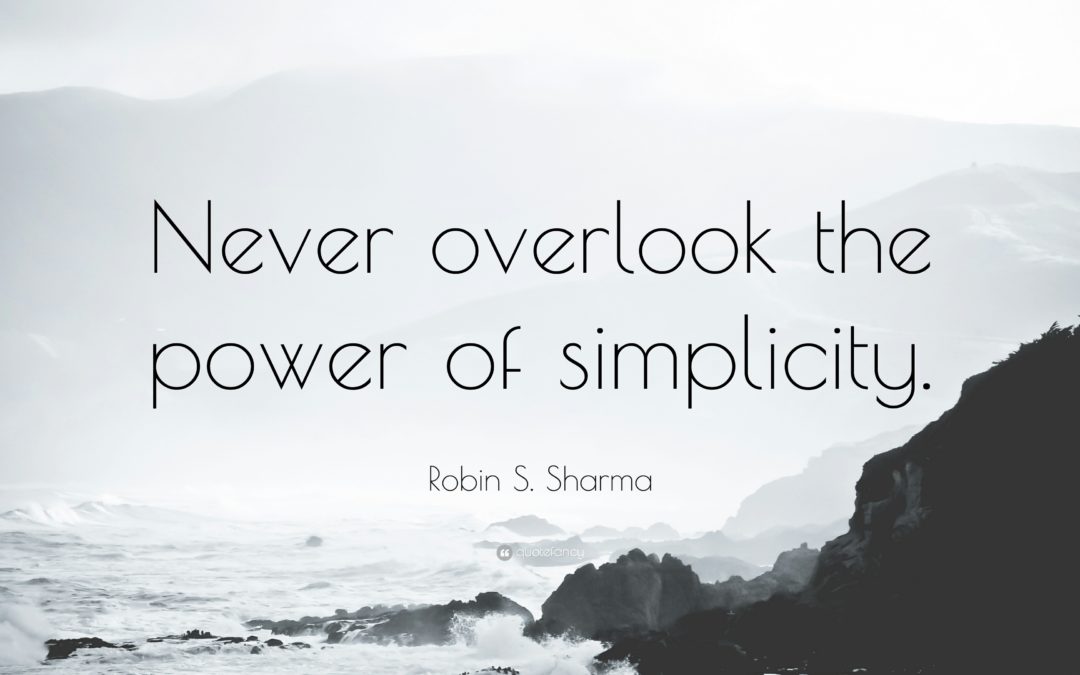
by Julia Felton | May 25, 2016
Recently I have been thinking about the power of focus and simplicity and increasingly I am realising that these are fundamental keys to success. This stark realization was brought about because it became increasingly clear that my clients and prospects didn’t really understand what I could do for them. Some people saw me as a horse trainer, others as a people trainer through horses, others as a fluffy horse gal but curiously very few people saw me as a credible business consultant, mentor and coach who could seriously help them develop and grow their business to the next level. Ouch. That was a tough pill to swallow.
And yet I am all those things. Yes, as many of you know I am passionate about helping leaders and teams develop greater self awareness through partnering with the horses to grow their leadership, teamwork and communication skills. However, what fewer people know about me is that I have created, grown and then sold a multiple million pound business. I’ve seen a business through the entire product life cycle – from inception to disposal – and that a pretty awesome thing to do. I’ve negotiated strategic joint ventures with some global players and done commercial due diligence of potential partners. I’ve designed the software and operating requirements for at least three technology platforms and worked with the IT team to translate my ideas into practical solutions that met the needs of both my clients and my team members. Along the way it also seems like I have become somewhat of an expert on the practical implementation issues of big data. Wow, that’s a lot so its no surprise that people struggle to articulate what I do.
And the challenge of all this is that when your clients can’t articulate what you do, they simply can’t recommend you to others, even if they might want to. So today I have decided to simplify what I do, so that everyone is clear on the benefits of working with me. So quite simply I am a business improvement specialist. Not very sexy but it does what it says on the tin. I help you improve your business. Now that may mean that I help you improve your business systems or processes or it might mean that I help you develop your team members and your leaders. But in whatever way I am serving you – with the vast array of tools in my tool box – the net result is more productivity and profitability, and what business owner wouldn’t want that.
The need for simplicity and clarity in our communication is more important than ever especially due to the overload of information that everyone is literally drowning under. It is being reported that you now have less than 8 secs to make an impression. If people don’t get what you do in this time frame then forget it. So you need to make sure that your online profiles, websites and other social profiles are all aligned and congruent so that every time someone sees you they get the same message.
Making things very simple is actually very complex and this is summed up well by Steve Jobs when he said in May 1998. “That’s been one of my mantras — focus and simplicity. Simple can be harder than complex: You have to work hard to get your thinking clean to make it simple. But it’s worth it in the end because once you get there, you can move mountains.”
What I have come to realise is that I had a limiting belief that if something was simple it was not worth doing. So I’d been making my business about as complicated as I could make it. Having loads of different products, a mass of different lead magnets and different target markets. I’ve barely been able to keep up with what has been happening so I’m sure others haven’t.
Sometimes the hardest thing is to let go of something and yet that is what I will need to do if I am really to simplify things. I’m resisting like crazy and yet I know that unless I create the space through simplification and divestification no new opportunities will be able to emerge.
So what do you need to simplify and focus on in your life in order to help others have clarity and certainty about what you do?
Julia Felton (aka The Business Wrangler) is the founder of Business HorsePower. Business leaders, entrepreneurs and executives hire her to accelerate their business performance by harnessing the energy of their people to work more collaboratively together. By aligning purpose with actions the team achieves exponential results as everyone starts pulling in the same direction.
Julia believes that business is a force for good and through designing purpose-driven businesses that leverage the laws of nature, and the herd, you can create businesses founded on the principles of connection, collaboration and community that make a significant impact in the world.
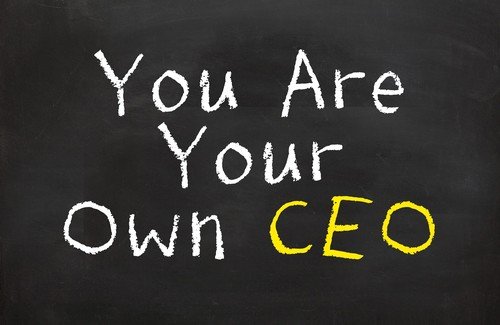
by Julia Felton | May 22, 2016
How many times have you heard an expert say “Stop working in your business and start working on your business”. Or “Start thinking like a CEO and lead your business. Stop acting like a team member”.
Conceptually all business owners I have ever met get that they need to step up and start leading their business if they are to get to the next level of success. The challenge is how to do this. But do this you must because your business won’t grow to the next level unless you the business owner up level your mindset and really start thinking like the CEO of your business.
And let’s just look at the business owner role. Are you really a business owner? According to National Statistics Office there are some 5.2million businesses in the UK, so you would think that all these people were business owners. Wrong. An incredible 75% are to my mind just self-employed experts who do not employ any team members. Sure. they are working for a business enterprise, that they own, but really the way they behave means that they are in effect working for the business, being reactive to all the circumstances that some up. That is not leadership, and that is not how a CEO behaves.
So lets look at the key differences between a self-employed expert, a business owner and a CEO.
Characteristics of a Self Employed Expert
- Highly proficient in their area of expertise (often referred to as being a great technician)
- Their view of what is achievable is limited by what they personally can do
- They have little or no leverage and are stuck trading time for money
- Very reluctant to outsource tasks or build a team
- Often can’t exceed USD250,000 in annual revenue
Characteristics of a Business Owner
- Grudgingly starts accepting they can’t do everything and so begins to strategically outsource tasks
- Adds to the team and starts leveraging other people’s time and expertise
- They often jealously guard some core areas of the business believing that only they can do this
- Usually experiences a rapid growth in both revenue and team
- Revenue typically flat lines between USD1-2 million per annum
Characteristics of a CEO
- Finally accepts they have to replace themselves in the business
- Consciously shifts their primary role to that of strategic relationship builder and rainmaker
- Limits the amount of time that they spend on service delivery to just a few key clients
- Appreciates that their role is to become irrelevant so that the business generates revenue without them
So how do you up level your mindset and start to become the CEO of your business. Here are three things that you can start with:
CEO Mindset #1: Don’t Make Business Decisions based Primarily On Your Personal Preferences
As you step up to become the CEO of your business you need to learn to start making decisions not based on what you personally like but what would be best for the business. For example, choose a business logo and brand colours that resonate with your target audience rather than ones that you really like. Travel to events where your clients will be hanging out, even it is inconvenient for you. Don’t confuse business expenses and investment decisions. The former waste money whereas the latter will over time generate you a return. For example, the decision to invest in a CRM systems won’t feel like an expense when it is delivering you qualified, automated leads every day.
CEO Mindset #2: Don’t Let Outside Factors Impact Your Ability To Take Action
In business there are always a myriad of outside influences that can impact what we do, however CEO’s don’t let outside circumstances take them off track. A classic example of this would be the business owner saying that they will invest in that sponsorship deal as soon as they have secure a new piece of work. Well if you know that sponsorship investment is absolutely the right thing for your business to do and will get you in front of your ideal client. Then surely you should make that investment regardless of whether you secure the new piece of work. In fact just by making the decision to invest and begin hanging out with your ideal client, you may will find that the new piece of work appears as if by magic.
CEO Mindset #3: Don’t Stick Your Head In The Sand and Avoid Addressing Important Issues
As the CEO it is your role to have courageous conversations with your team members, even if it feels uncomfortable. You also need to ensure that key issues in the business are addressed such as having contracts in place, making sure your accounts are completed and other legal obligations. Now I appreciate that some of these things might not fall into your area of expertise but as the CEO it is your responsibility to manage these operations and ensure that your business is compliant at all times. As the CEO you must always be thinking “What is the best for the business”, even if that answer is outside your comfort zone.
You’ll be amazed at what happens when you start stepping up and becoming the CEO of your own business how that has ripple effect on everyone around you. Your new found leadership inspires others to also up level their game and as a consequence business productivity and profitability results.
Julia Felton (aka The Business Wrangler) is the founder of Business HorsePower. Business leaders, entrepreneurs and executives hire her to accelerate their business performance by harnessing the energy of their people to work more collaboratively together. By aligning purpose with actions the team achieves exponential results as everyone starts pulling in the same direction.
Julia believes that business is a force for good and through designing purpose-driven businesses that leverage the laws of nature, and the herd, you can create businesses founded on the principles of connection, collaboration and community that make a significant impact in the world.
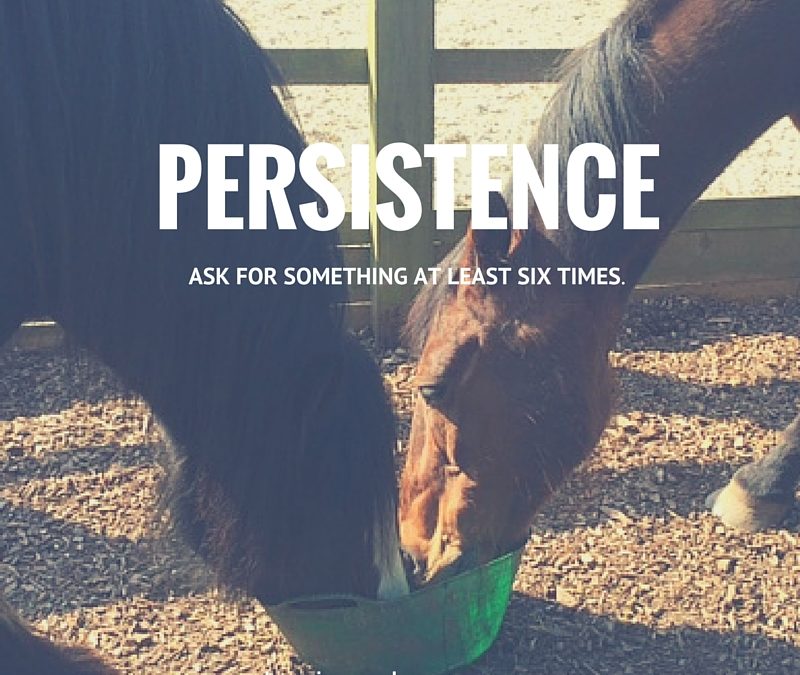
by Julia Felton | May 18, 2016
This week’s daily dose of inspiration is inspired by my pony Thistle and how she behaved this morning. Every day I take the horses breakfast and as usual the ponies – Bracken and Thistle – finished first. (Partly because they are greedy and wolf the food down but also to be fair they do get smaller portions!).
Well after Thistle had finished her breakfast this morning she approached Toby and asked him if she could share his breakfast. Toby’s initial response was NO WAY. He barred his teeth and then moved his hind quarters round and tried to kick her. However, undeterred Thistle kept asking and after some time Toby finally acquiesced and let her breakfast with him.
Watching Thistle’s persistence in asking for what she wanted got me thinking about business and how often we don’t persist in asking for what we want. How often do you ask a potential client for the sale and just because you don’t get an answer you assume that they don’t want your services? If you are like me, I know I am guilty of thinking that. And then you know I simply don’t follow up with that prospect again.
This is a foolhardy strategy and one that means that I am always out seeking new prospects. What if those clients were right there under my nose but I just hadn’t asked them enough times if they needed my services?.
One of the joys and also challenges of the times we live in is the abundance of information we have at our finger tips. This is both a blessing and a curse, as if often means we are drowning in data and information. What if that prospect actually wanted your services but had just missed your email. What a wasted opportunity for both of you.
In a previous blog post Persist as The Money is in the Follow Up I share how 80% of sales are made on the 5th to 12th contact and this reminded me of what my mentor Clinton Swaine told me: “Ask six times for exactly what you want”. Just because you get a No the first time doesn’t means that you will always get a No. Thistle demonstrated this just perfectly this morning. She knew exactly what she wanted and kept asking until she got it.
And increasingly I am finding in business that people rarely respond to a first request. In fact a know a number of people that actually won’t respond to a first request. They know that if the person is serious they will ask again, and if they fail to then they know that either that person wasn’t committed to wanting to work with them. I find that quite a sobering thought!.
So I’d love you to think about the number of times you have failed to ask for what you wanted at least six times. Make a list of all these people and situations and then reach out to these people again. They might just be waiting to hear from you. After all persistence is the key to success. So be tenacious and you might surprised at the results.
So what are you waiting for. Get into action now and let me know in the in the Facebook group how you get on.
Julia Felton (aka The Business Wrangler) is the founder of Business HorsePower. Business leaders, entrepreneurs and executives hire her to accelerate their business performance by harnessing the energy of their people to work more collaboratively together. By aligning purpose with actions the team achieves exponential results as everyone starts pulling in the same direction.
Julia believes that business is a force for good and through designing purpose-driven businesses that leverage the laws of nature, and the herd, you can create businesses founded on the principles of connection, collaboration and community that make a significant impact in the world.
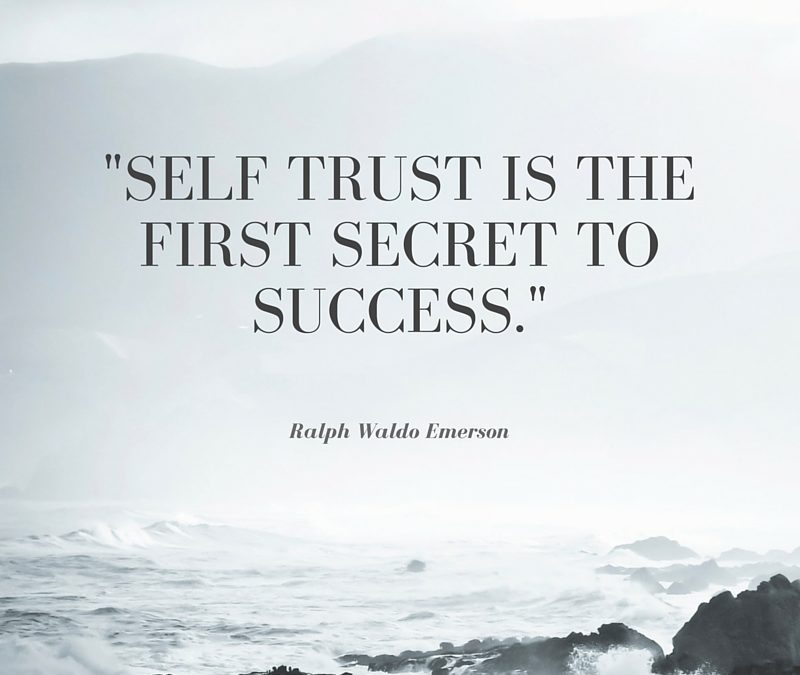
by Julia Felton | May 4, 2016
Recently I have been thinking a lot about trust and how it is a vial ingredient for success in both life and business. In my book The Alchemy Of Change I have two chapters dedicated to trust as it is the glue that holds everything together. Without trust business falters and without self trust we are unlikely to develop our true potential.
In The Speed of Trust, Stephen M..R. Covey identifies fives waves of trust and the first is self-trust. It is all about being credible and developing integrity, intent, capabilities and results that make you believable to both yourself and others. But how do you develop self-trust?
Building trust starts with the small things in life, like doing what you say you will do and keeping appointments with yourself. It might seem obvious but every time you fail to keep an appointment with yourself you are effectively saying that you are not important enough and something else is. In this way you start eroding your self confidence and your self worth.
Research has also shown that a person’s level of self-confidence impacts their performance. This is why Jack Welch felt so strongly that “Building self-confidence in others is a huge part of leadership”. Just think about it. If you don’t have any confidence your own abilities to do the job then you are unlikely to do a great job.
The classic example of this shows up in sales because if the sales person is not confident about the benefits of the service/product they are offering, they will not instill any confidence in the buyer that the product./service will meet their needs. And the end result is that no sale is made. Contrast this with the confident sales person who instinctively knows that their product/service will meet the buyers needs. Every fibre of their being knows this is the right solution for the buyer and invariably that translates into a sale. The buyer also just feels confident that the sales person knows what they are talking about and trusts that they will offer them the right solution.
So how as leaders do we build trust with others? It is by how we act. We need to continually demonstrate our credibility and integrity to others and keep our own standards, thereby acting as a mirror of how we want others to act.
So as you go about your week please think about how you can increase you own levels of self-trust so that you can be credible, inspiring and compelling to those around you and therefore elevate their level of trust in you. Trust me the results in your business will shift immeasurably when you are seen as a trusted adviser to your clients.
Julia Felton (aka The Business Wrangler) is the founder of Business HorsePower. Business leaders, entrepreneurs and executives hire her to accelerate their business performance by harnessing the energy of their people to work more collaboratively together. By aligning purpose with actions the team achieves exponential results as everyone starts pulling in the same direction.
Julia believes that business is a force for good and through designing purpose-driven businesses that leverage the laws of nature, and the herd, you can create businesses founded on the principles of connection, collaboration and community that make a significant impact in the world.
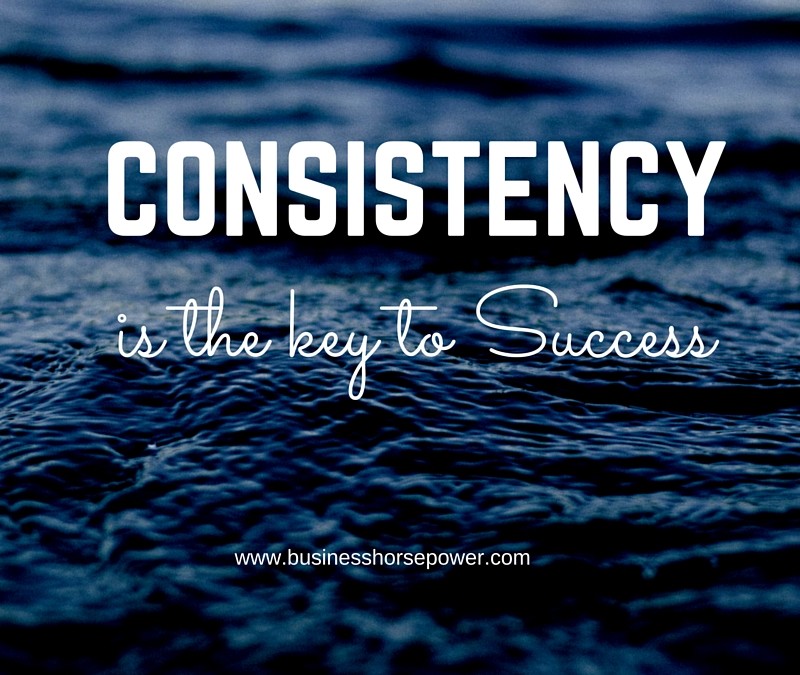
by Julia Felton | Apr 27, 2016
The thought in this week’s Wednesday Wisdom is all the more appropriate as I’m sending this out three hours late!! And this weeks thought is all about the power of consistency, which I believe is one of the keys to business success.
Whatever you want to achieve in life, you won’t become a master unless you demonstrate consistent behaviour and keep training at that discipline. Malcolm Gladwell in the book Outliers says that it takes roughly ten thousand hours of practice to achieve mastery in a field. That requires some consistent behaviour and discipline to show up each and everyday and practice.
The whole concept of consistency has been coming up for me recently with regard to my running. I started the year in great form and was going out on average five days a week. Then I went to South Africa for the best part of three weeks. I didn’t run once and boy was starting again tough when I got back to the UK. And then last week I was in London for a week and yes you guessed it, I didn’t run. This week been really painful trying to get back into the groove.
So what I’ve been learning is that I need to be more disciplined in my life and business and take consistent action each and every day. Because as I have experienced every time I stop it is so much harder to get started again. Consistency helps put structure into your day which in turn actually makes you more productive and efficient. You simply know what you have to get done.
Consistency is particularly important when it comes to marketing your business. You only need about 30 mins a day but making sure you engage in some marketing activities each and everyday helps ensure you have a pipeline of clients who want to work with you. Fail to do this and then you begin suffer from the money roller-coaster, that so many business owners experience.
So I’m going to out myself and apologise to my clients as I have not been following the advice I give you and marketing consistently for 30 mins a day. However, the great news is that now I have a limited number of spaces available for clients who want to make a significant impact in the world and take their business to the next level.
Are you one of these people? If so lets have a complimentary, no obligation chat and if you like what you experience, great I’ll share with you how we can work together.
I only have a limited number of spaces so reserve your place now and let’s see what is possible for you. I look forward to connecting with you.
Have a great rest of the week and an amazing Bank Holiday weekend and don’t forget to do your 30 mins marketing a day!
Julia Felton (aka The Business Wrangler) is the founder of Business HorsePower. Business leaders, entrepreneurs and executives hire her to accelerate their business performance by harnessing the energy of their people to work more collaboratively together. By aligning purpose with actions the team achieves exponential results as everyone starts pulling in the same direction.
Julia believes that business is a force for good and through designing purpose-driven businesses that leverage the laws of nature, and the herd, you can create businesses founded on the principles of connection, collaboration and community that make a significant impact in the world.
















